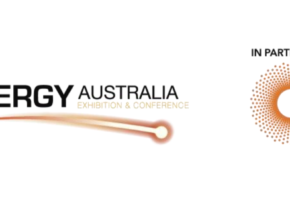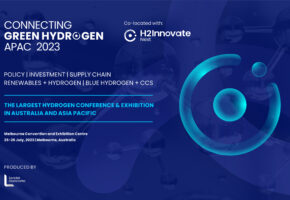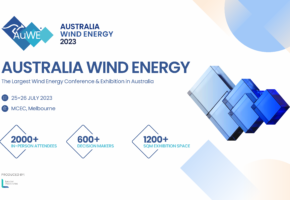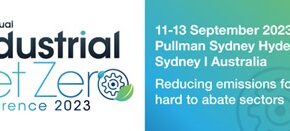Renewable Retail PPAs are growing rapidly in the Australian market – learn how your organisation can execute one
To launch our guide on Renewable Retail PPAs, the BRC-A’s second instalment of the 2020 webinar series, Buying Power, went live on Thursday 14 June 2020.
225 renewable energy buyers, project developers and professional service providers heard insights on Retail PPAs from retailers, experienced energy buyers, and a consultant:
- Tricia Lorenzo – Sales Manager, Flow Power
- Nathan Epp – Business Development Manager, ENGIE
- John Griffiths – Director, Business Development, City of Melbourne
- Emma Bombonato – Environmental Sustainability Manager, Sydney Opera House
- Ben Waters – Founder and Director, Presync
- Chris Briggs – Technical Director, BRC-A & Institute for Sustainable Futures, University of Technology
What is a Renewable Retail PPA?
In response to demand among a diverse variety of buyers (outside large electricity users) including councils, food and beverage companies, manufacturers, and schools (to name but a few), retailers have been developing products to allow these companies access to the benefits of renewable energy. Around 80 organisations have made Renewable Power Purchase Agreements (PPAs) now to hedge against future price volatility while achieving sustainability targets.
Under a Retail PPA, the electricity retailer negotiates the agreement with the solar or wind farm which is incorporated into your supply agreement. For those that have neither the resources nor buying power to navigate and procure a Wholesale PPA directly with a renewables project, a Retail PPA can be attractive as the retailer does the negotiating. There are a range of models emerging from fixed-price offers through to variable-price offers with exposure to the wholesale market.
However, navigating Retail PPA procurement can still be complex given the variety of options, so the BRC-A has developed a Retail PPA Guide as an introductory resource. It targets buyers with annual electricity costs from $1 million to $10 million per annum who are interested in off-site renewable energy, understanding how Retail PPAs function and which products are currently offered by retailers in the National Electricity Market (NEM).
Key takeaways:
- Australia had a late start in Corporate Renewable PPAs but the market has innovated rapidly with a range of deal structures having emerged to cater to varying levels of buying power and risk appetite.
- Renewable Retail PPAs are allowing SMEs to tap into the value of renewable energy – competitive pricing and sustainability benefits.
- The BRC-A’s Retail PPA Guide can help you get started, and identifies the retailers and their products currently on offer in the NEM.
There is a suite of Retail PPA types and pricing models catering to a range of risk appetites.
Broadly, a Retail PPA consists of a fixed price paid to a solar or wind farm when its generation matches the customer’s load, the spot price less the fixed price paid back to the customer when the farm generates excess output, and during hours that the farm is not generating, the retailer steps in to provide a balancing supply to keep the lights on.
In Australia however, new pricing arrangements for the balancing supply and excess generation have emerged in recent year. In the Buying Power webinar, we heard from two retailers that offer different models.
Flow Power combines a Renewable Retail PPA with balancing supply that may be the direct wholesale market spot price (or linked to ASX futures to allow more predictable spend over longer timeframes) with active demand management support to manage risk.
Simply Energy’s (ENGIE) offering includes a fixed-price contract with full firming drawn from their generation portfolio, which can be revisited throughout the term to incorporate new generation supply directly.
Buyers choose Retail PPAs for flexibility and attractive pricing while fulfilling sustainability obligations.
John Griffiths explained the lower risk and simpler structure of a Retail PPA allowed the participation of local councils and corporates in the Melbourne Renewable Energy Project (MREP) that would otherwise have found the financial and accounting requirements of a wholesale PPA insurmountable.
Through the MREP, the City of Melbourne leveraged the buying power of a 14-member aggregated group to support the Crowlands Wind Farm. Given no Australian precedent at the time, the undertaking was long and complicated, but the undertaking delivered benefits beyond sustainability, long-term price certainty and potential financial savings, namely: local job creation, driving investment in a new wind farm, and a bolstered reputation as an active proponent of the transition to a low-carbon future.
Another recent Retail PPA has enabled one of Australia’s icons – the Sydney Opera House – to go 100 per cent renewable. Following energy efficiency upgrades and offsets purchasing to achieve carbon neutrality, the Sydney Opera House looked to go further to become climate positive. Emma Bombonato explained that the Sydney Opera House chose a retail PPA for its simplicity and customisability, and provided tips for prospective buyers, including engaging a specialist early in the process to help ‘decipher’ PPA language, internally socialising the concept early and selecting a retailer that can tailor an offering to meet your specific criteria (for example in the Sydney Opera House’s case, close load-matching from a wind and solar farm, and a ceiling product managing spot price event risk when afternoon load shifting is unfeasible).
The buyers emphasised the vital importance of a consultant to ‘translate’ and guide buyers through the journey. Ben Waters from Presync brought the consultant’s perspective, explaining the importance of matching between the load of the customer, different environmental claims, and the benefits of financial modelling to build a strong business case.
View the recording here if would like to learn more about Retail PPAs, and sign up as a BRC-A member to access the Retail PPA Guide and stay astride of future webinars.
About the BRC-A’s 2020 Webinar Series: Buying Power
Designed to provide Australian organisations with the know-how to procure renewable PPAs, the Business Renewables Centre Australia’s 2020 webinar series puts the spotlight on key topics of the Australian PPA market.
Latest news & blogs
NEWS | 7 November, 2023





